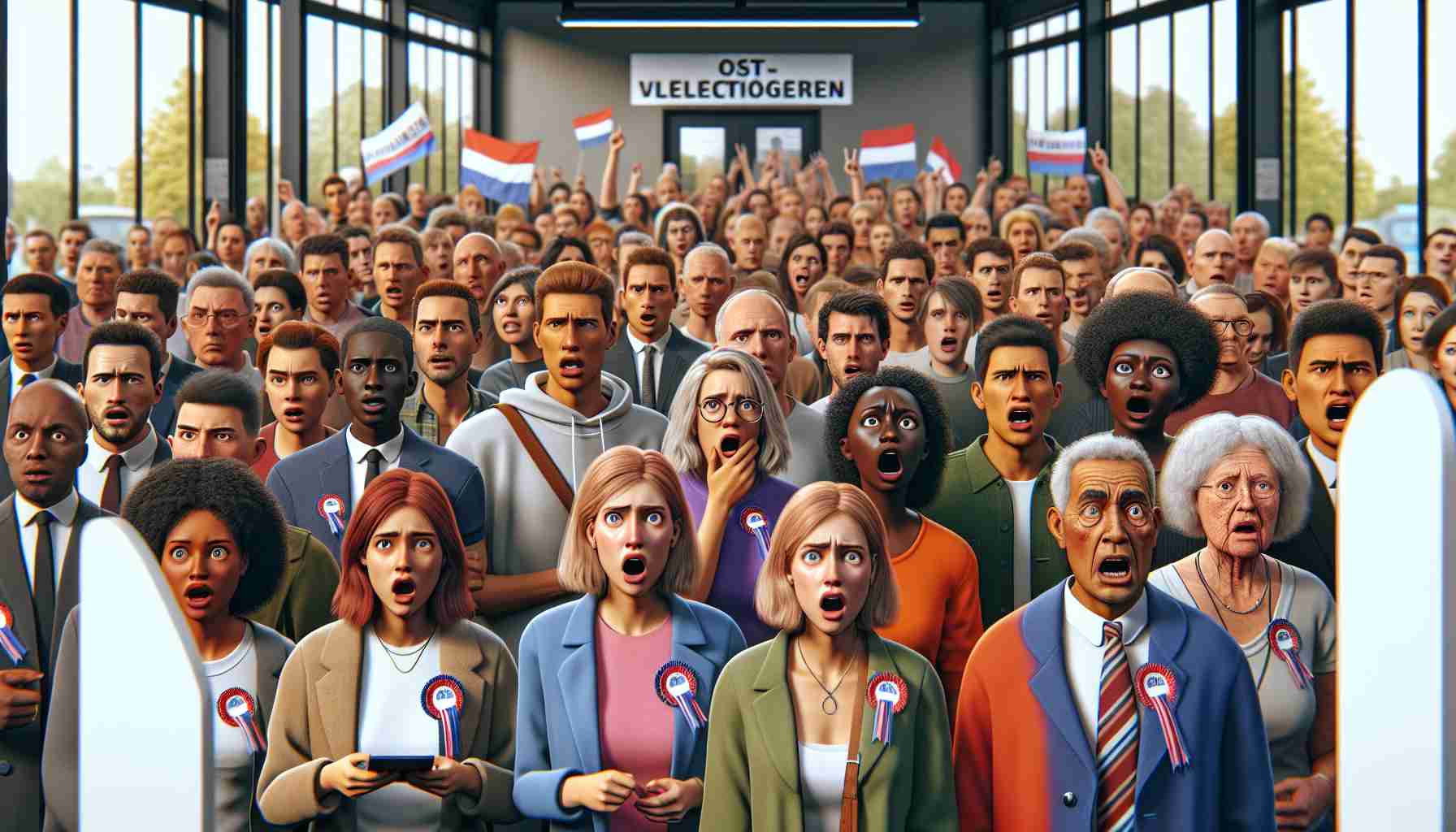
Local Elections in Oost-Vlaanderen Unveil Surprising Results
A Glimpse into Voting Trends in Oost-Vlaanderen
In Eeklo, a mere 53.7% of eligible voters turned up to cast their ballots, marking the lowest voter turnout in Oost-Vlaanderen. On the contrary, Ninove saw the highest voter participation in the province, with approximately 73.5% showing up to vote.
Focus on Key Municipalities in the Region
Leading up to the elections, much attention was centered around Brakel, Gent, Zelzate, and Ninove. Ninove made headlines internationally as Guy D’haeseleer of Forza Ninove secured a radical-right victory to become the city’s first mayor from that political spectrum. While in Gent, the battle between Mathias De Clercq and Filip Watteeuw concluded with De Clercq emerging as the victor. Meanwhile, Alexander De Croo of Open VLD narrowly maintained power in Brakel, despite facing a challenging electoral landscape.
Zelzate’s Political Landscape Revisited
Zelzate, known for its previous left-wing administration, witnessed a shift in fortunes as Vooruit secured a significant win, falling just short of an absolute majority. Incumbent Mayor Brent Meuleman has the option to form a coalition with PVDA or CD&V N-VA 9060.
Incumbent Mayors Prevail Across the Region
Reaffirming the status quo, incumbent mayors saw success across central cities like Sint-Niklaas, Aalst, and Gent, consolidating their positions. Moreover, smaller towns, including Brakel and Evergem, saw their mayors securing absolute majorities with ease, signaling stable continuity in governance.
Emergence of New Political Majorities
The 2018 trend of absolute majorities continued in this election cycle, with many parties solidifying their positions. Noteworthy was the rise of new coalitions and absolute majorities, especially evident in Ninove with Forza Ninove’s strong mandate.
By delving into the nuances of the local political landscape, the electoral outcomes highlight both continuity and change in governance across Oost-Vlaanderen.
New Revelations from Oost-Vlaanderen’s Local Elections
As the dust settles on the recent local elections in Oost-Vlaanderen, several intriguing developments have come to light, shedding further insight into the political dynamics of the region. While the previous article touched on some key municipalities and voting trends, there are additional layers to the election results that merit attention.
Key Questions and Answers:
1. What role did socio-economic factors play in the election outcomes?
While the focus has largely been on party politics, socio-economic disparities within various communities in Oost-Vlaanderen have also influenced voting patterns. Issues such as unemployment rates, income levels, and access to resources have subtly shaped voter behavior in different municipalities.
2. Were there any instances of electoral misconduct or irregularities?
Amidst the overall smooth conduct of the elections, there were reports of isolated incidents of electoral misconduct in certain areas. These incidents, though minor, have prompted calls for greater vigilance and transparency in the electoral process in the future.
Challenges and Controversies:
One of the key challenges stemming from the election results is the potential fragmentation of political power across the region. With the emergence of new political majorities and shifting alliances, the formation of stable governing coalitions may prove to be a complex task. The need for consensus-building and effective governance amidst diverse ideological positions poses a significant challenge for the newly elected officials.
Advantages and Disadvantages:
On the positive side, the surprising results of the local elections have injected a sense of dynamism and fresh perspectives into the political landscape of Oost-Vlaanderen. The emergence of new leaders and coalitions brings the promise of innovative policy approaches and renewed civic engagement.
However, the downside lies in the potential for heightened polarization and gridlock in decision-making processes. The divergence of political ideologies and priorities among the elected officials could lead to protracted debates and delays in addressing pressing issues facing the region.
By navigating the intricacies of the post-election scenario, Oost-Vlaanderen stands at a critical juncture where the need for effective governance and collaboration outweighs individual interests or party affiliations.
For more insights on the broader implications of local elections in Belgium, visit Belgium’s official government portal.

















